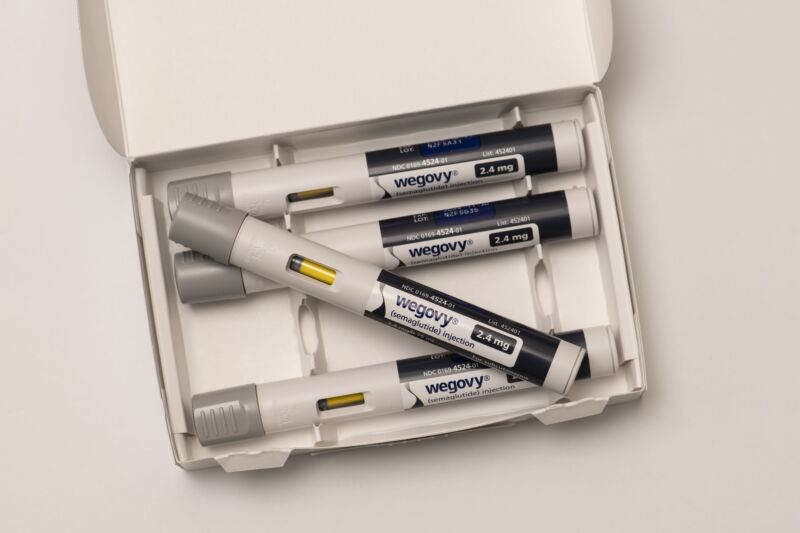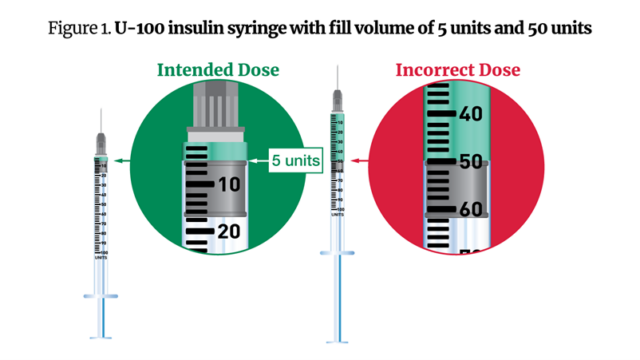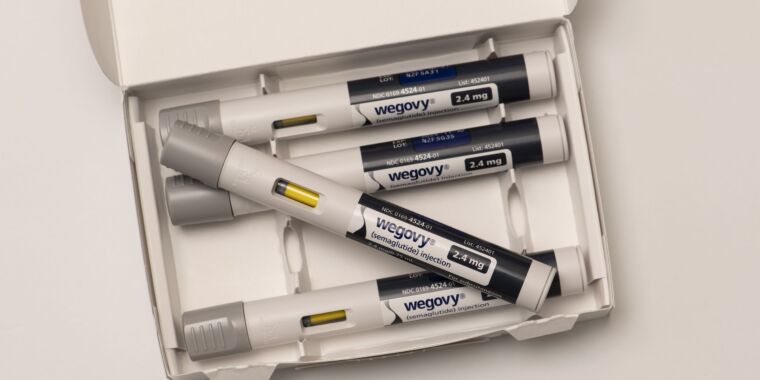
The U.S. Food and Drug Administration has approved two injectable versions of the blockbuster weight-loss and diabetes drug semaglutide (Wegovy and Ozempic). Both come in prefilled pens with preset doses, clear instructions and overdose information. But given the drugs’ daunting prices and shortages of supplies, many patients are turning to imitations, which don’t always have the same safety features.
In an alert Friday, the FDA warned that people are overdosing on off-brand semaglutide injections, which are dispensed by compounding pharmacies in different concentrations, labeled with different units of measure, administered with incorrectly sized syringes and prescribed with poor dosing calculations. The errors are leading some patients to take up to 20 times the intended amount of semaglutide, the FDA said.
While the agency doesn’t count the number of overdose cases it’s reported, it suggests it’s received multiple reports of people getting sick from dosing errors, with some requiring hospitalizations. Semaglutide overdoses cause nausea, vomiting, abdominal pain, fainting, headache, migraine, dehydration, acute pancreatitis and gallstones, the agency reports.
Bad math
In typical situations, compounding pharmacies offer personalized formulations of FDA-approved medications, such as when a patient is allergic to a specific ingredient, requires a special dosage, or needs a liquid version of a medication rather than a pill form. But when commercially available medications are in short supply—as semaglutide medications currently are—compounding pharmacies can legally step in and make their own versions if certain conditions are met. However, these knockoffs are not FDA-approved and, as such, do not come with the same guarantees of safety, quality, and effectiveness as approved medications.
In Friday's warning, the FDA said some patients received confusing instructions from compounding pharmacies, indicating they were injecting themselves with a certain number of “units” of semaglutide — the volume of which can vary depending on the concentration — rather than milligrams or milliliters. In other cases, patients were given U-100 (1-milliliter) syringes to administer doses of 0.05 milliliters of the drug, or five units. The relatively large syringe size relative to the dose led some patients to administer 50 units instead of five.

FDA-approved semaglutide medications, meanwhile, are dosed in milligrams and come in standardized concentrations. The agency has received several reports of health care providers incorrectly converting milligrams to units or milliliters, resulting in incorrect dosages. These miscalculations resulted in some patients receiving five to 10 times more semaglutide than intended.
“FDA recognizes the substantial consumer interest in using compounded semaglutide products for weight loss,” the agency wrote. “However, compounded medications pose a higher risk to patients than FDA-approved medications.” The agency urged patients and prescribers to use compounded versions only when absolutely necessary.

